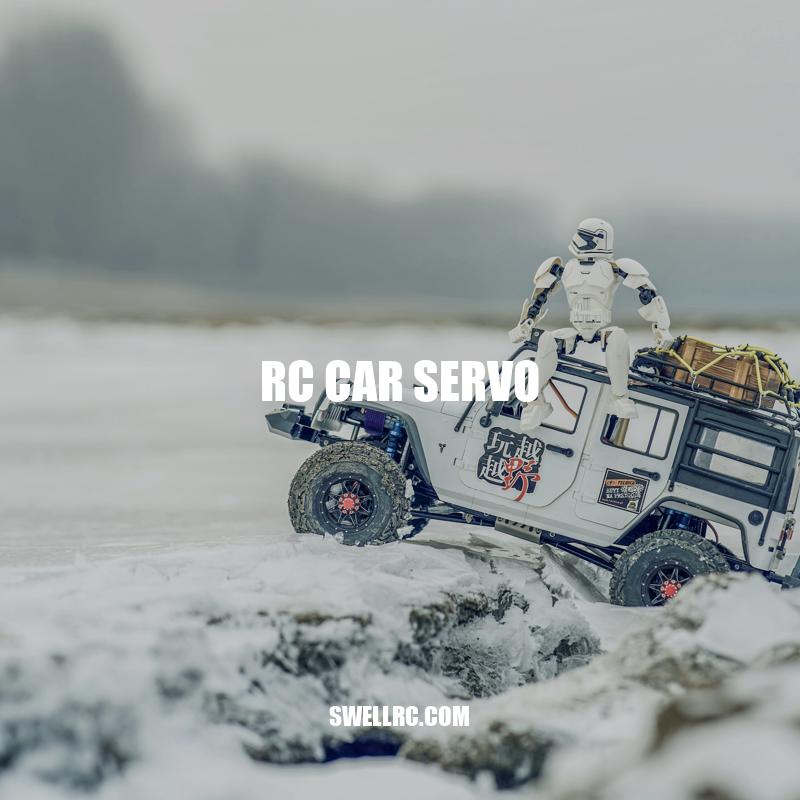Guide to Choosing and Maintaining RC Car Servos
The RC car servo is a crucial part of the remote-controlled car. It is responsible for controlling the direction and speed of the wheels. A well-functioning servo is essential for precise and accurate control of the car. In recent years, there has been an increase in demand for high-quality servos as the popularity of remote-controlled car racing continues to grow.
Types of RC Car Servo
- Analog Servos
- Less expensive than digital servos
- Easier to use
- May not offer the same level of precision as digital servos
- Digital Servos
- More expensive than analog servos
- Offer better precision, accuracy, and response time
When it comes to RC car servos, there are generally two types: analog and digital. Analog servos are less expensive and easier to use, making them a popular choice for beginners. However, they may not offer the same level of precision as digital servos. Digital servos, on the other hand, are more expensive but offer better precision, accuracy, and response time. It’s important to consider the type of servo that works best for your specific RC car and racing needs. There are various websites that offer a wide range of analog and digital servos to choose from.
One of the popular brands of digital servo is Futaba. They offer a range of digital servos that are known for their accuracy and precision. Another popular brand is Hitec, which offers a range of analog and digital servos for different types of RC cars. It’s important to choose a servo that is compatible with your RC car and its specifications.
In addition to the type of servo, it’s also important to consider the servo’s torque rating. This rating refers to the amount of force the servo can generate. A higher torque rating is important for larger RC cars or those that require more power. Another factor to consider is the servo’s response time, which refers to how quickly the servo can move to a specific position. A faster response time is important for more precise control of the RC car.
In conclusion, choosing the right RC car servo is essential for optimal performance and control of the RC car. Analog and digital servos each have their own benefits and drawbacks, and it’s important to consider factors such as torque rating and response time when choosing a servo. Popular brands such as Futaba and Hitec offer a range of analog and digital servos to choose from, ensuring that you can find the right servo for your specific RC car and racing needs.
What factors should be considered when choosing an RC car servo, and what popular brands offer a range of options?
When choosing an RC car servo, factors to consider include torque, speed, size, and compatibility with the receiver and radio system. Popular brands that offer a range of options include Futaba, Spektrum, Hitec, and Savox.
Factors to Consider When Choosing an RC Car Servo
There are several factors that you should keep in mind while choosing an RC car servo. Some of them are:
- Torque – The amount of force the servo can exert.
- Speed – How fast the servo can move from one position to another.
- Size – The size of the servo that works best for your RC car.
- Weight – The weight of the servo that works best for your RC car.
- Compatibility – The compatibility of the servo with your RC car and remote control.
| RC Car Type | Torque (oz-in) | Speed (s/60°) |
|---|---|---|
| Off-road trucks and buggies | 150-250 | 0.15-0.20 |
| On-road cars and touring cars | 80-120 | 0.10-0.15 |
| Drift cars | 50-80 | 0.08-0.12 |
It’s important to choose an RC car servo that can handle the weight and size of your car while offering the right level of torque and speed. Different types of RC cars have different torque and speed requirements. For example, off-road trucks and buggies require servos with higher torque and speed compared to drift cars. Several websites offer a list of servos rated based on different factors like torque, speed, and compatibility with various RC cars and remote controls. Some popular RC car servo brands are Hitec and Futaba.
What are some popular brands of RC car servos?
Some popular brands of RC car servos include Futaba, Hitec, Spektrum, and Savox.
Maintenance and Troubleshooting RC Car Servo
Just like any other electronic component, RC car servos require routine maintenance and occasional troubleshooting. Here are some tips on how to maintain and troubleshoot an RC car servo:
- Regularly clean the servo and ensure gears and bearings are well lubricated.
- Check connections and wiring for damage or wear and tear.
- Ensure the servo is properly mounted and secured in the RC car.
- Check if the servo is getting enough power from the battery.
- Adjust the servo gears if necessary to ensure smooth operation.
- Recalibrate the servo if there are any issues with the servo’s settings.
Sometimes, even after performing regular maintenance, RC car servos may malfunction. This may be due to internal damage or a faulty component. It’s crucial to troubleshoot the servo to identify and fix any issues. Several online resources provide useful guides and tutorials on how to troubleshoot and fix common RC car servo problems. If you’re unable to fix the problem on your own, you may contact the manufacturer or a professional RC car mechanic for help.
What are common problems with RC car servos that require troubleshooting?
Common problems with RC car servos that require troubleshooting include failure to move, erratic movements, buzzing sounds, and overheating.
Conclusion
In conclusion, the RC car servo is a critical component that contributes to the performance and control of the remote-controlled car. Analog and digital servos offer varying levels of precision, accuracy, and response time to best suit your needs. When choosing an RC car servo, you should consider factors such as torque, speed, and compatibility with your RC car. Regular maintenance and troubleshooting are essential to ensure that your servo lasts longer and performs optimally. By taking good care of your RC car servo, you can have hours of fun and enjoyment with your RC car on the track or off-road. Remember to follow the manufacturer’s guidelines and recommendations for the best results and make sure to consult online resources or seek professional help if you’re unsure how to fix any issues with your servo. With your newly gained knowledge, you can confidently select, maintain, and troubleshoot the perfect servo to help you achieve your desired performance in the world of remote-controlled car racing.



